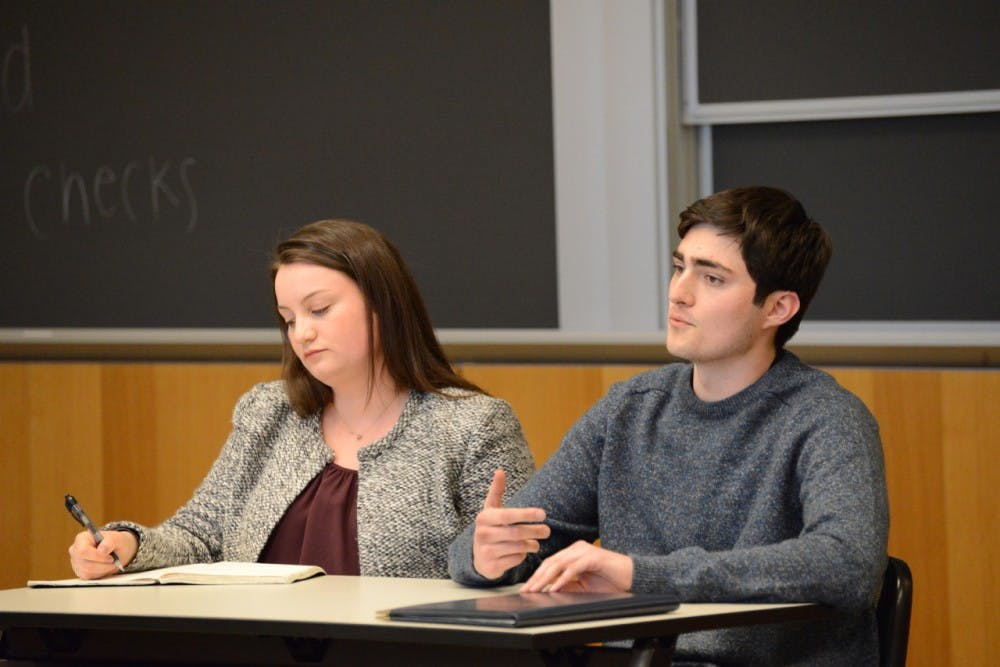A conflict between the Undergraduate Assembly and the Nominations and Elections Committee over questions of student representation on the University Council came to a head after a failure to implement a compromise between the two groups.
On Monday, UA President and College senior Jane Meyer sent an email to members of the NEC announcing three new appointments to the University Council. NEC chair and Wharton senior Michael Roberts alleges that these appointments violate the UA bylaws on two counts and prevent the appointment of students from mis- and underrepresented groups to the council.
The University Council, a body of student leaders and administrators that meets on a monthly basis, provides 13 seats to undergraduate students, in addition to two other spots always held by the UA president and vice president. One of the 13 seats, one is reserved for the UA speaker and up to nine are reserved for "mis- and underrepresented groups" chosen by the NEC, according to Section V of the UA bylaws.
The remaining three seats go to students jointly appointed by the NEC and UA, according to the bylaws. NEC and UA members call these "flex seats." The NEC had hoped to appoint students from “underrepresented groups that needed to have their voices heard,” Roberts said, adding that he could not disclose the names of the student groups.
However, after several meetings between the NEC and the UA, the two groups did not come to an agreement on who would fill the three seats. On Monday night, Meyer emailed NEC executives saying that the UA had appointed three UA members to the University Council.
The NEC alleges that the UA’s unilateral decision violates the UA bylaws because the UA did not consult members of the NEC before making the appointments.
But the UA says the appointments were legal. "The UA believes that it needs those seats to adequately represent the school," Meyer said.
The UA is arguing that the three seats should go to students in the Nursing, Wharton and Engineering schools to ensure that each school is represented on the University Council. The three UA members who already sit on the council are all students in the College of Arts and Sciences.
The NEC charged the UA with violating a second part of the bylaws by appointing members to the University Council after the deadline explicitly outlined in the bylaws, which was Sunday night’s UA meeting. NEC executive members received the email from Meyer with the three additional representatives approximately 24 hours later.
Meyer said that the UA was not obligated to secure NEC approval for the three appointees and that they were appointed during Sunday’s UA meeting, before the deadline. She maintained that the UA did not violate any bylaws.
After disagreeing over how to allocate the three remaining seats months ago, the NEC and UA proposed a compromise: Any of the nine students appointed by the NEC from mis- or underrepresented backgrounds could also be considered representatives for their undergraduates schools. This double-counting would free up some of the flex seats for other student representatives who are not necessarily from different undergraduate schools. The compromise would also allow the UA to replace the speaker with another student if needed.
However, the long hours students from the NEC and UA spent drafting the compromise were rendered in vain when, on Sunday, the UA general body struck down an amendment to its bylaws that would allow for the new plan to be carried out.
The two student government groups arranged a meeting through their advisor in the Office of Student Affairs, where they will discuss the conflict and how to proceed.
"The NEC definitely still wants to compromise with the UA," Roberts said. "I’ve reached out to our shared advisor in the Office of Student Affairs in order to set up a meeting with [Meyer]."



